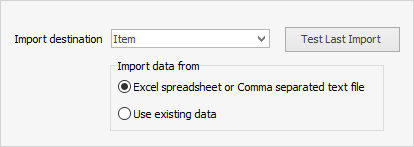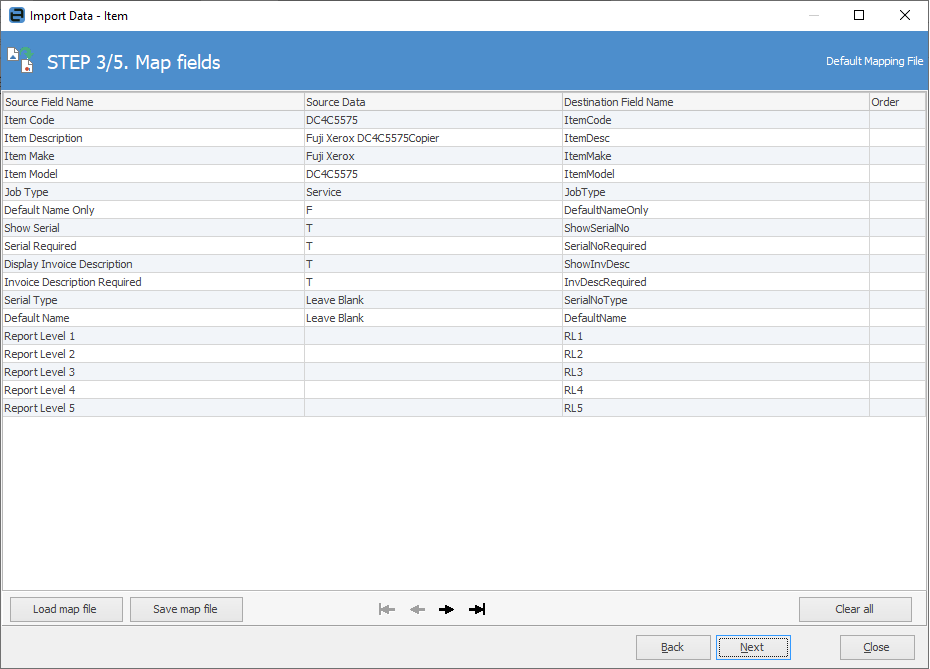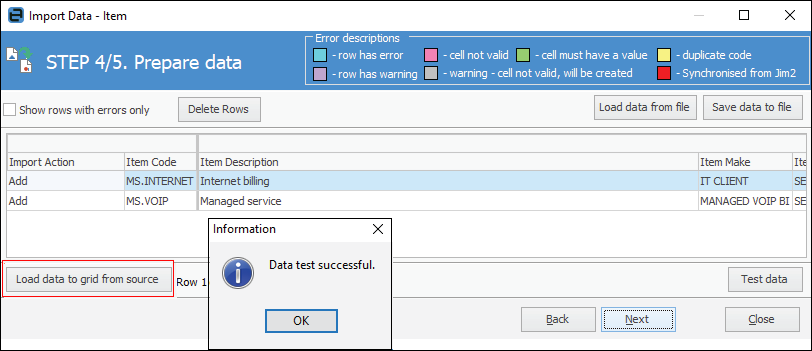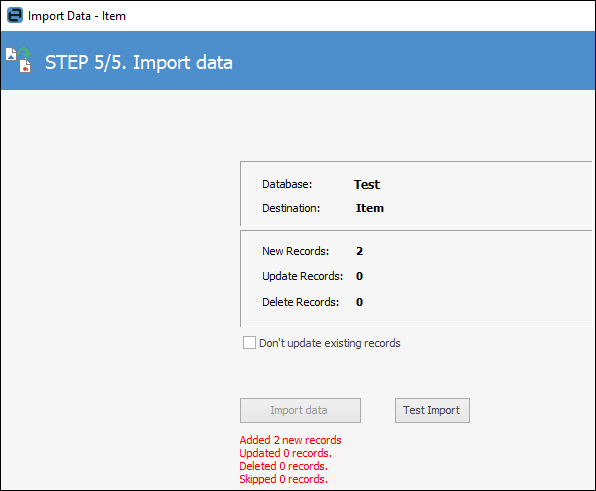Before importing Items into Jim2, the data must be prepared first. The following explains the Jim2 Items fields.
Create a spreadsheet based on the table below.
|
It is very important to get the data right at this stage – the correct spelling, the look required, all the records verified. It is a lot easier and quicker to amend it now in a spreadsheet than later when it is in database form. |
Field |
Description/Use |
Data Type |
# of Chars |
Example |
|---|---|---|---|---|
ItemCode |
The Jim2 Item code |
String |
25 |
MS.INTERNET |
Make |
Item Make |
String |
15 |
N/A |
Model |
Item Model |
String |
15 |
N/A |
Type |
Not used |
String |
N/A |
Leave blank |
Item Description |
Description of Item |
String |
25 |
Managed Internet Billing |
MachineType |
Mono or colour |
String |
10 |
N/A |
Job Type |
Sale or Service job type |
String |
10 |
Service |
Show Serial |
Show/hide serial number |
Boolean |
T/F |
T |
Serial Required |
Serial number required |
Boolean |
T/F |
T |
Serial Type |
Leave blank or assign job# |
String |
25 |
Leave Blank |
Display Invoice Description |
Display/hide invoice description |
Boolean |
T/F |
T |
Invoice Description Required |
Invoice description is/not required |
Boolean |
T/F |
T |
Default Name |
Enter a default username |
String |
10 |
Enter user card code |
Default Name Only |
Only allow the default name user |
Boolean |
T/F |
T |
Report Levels 1 to 5 |
Enter Report Level |
String |
30 for each level |
IT customers |
 |
When entering numbers that have a leading zero in some columns, to ensure Excel does not trim off the zeroes, set the column format to Text or add an apostrophe (') prior to the 0. |
Save the template as a spreadsheet file (XLSX) and close the spreadsheet.
 |
Always test importing data in the Training database first! |
It is best when doing the import (for speed and good database practice) to choose a reasonably quick machine/server and not have users actually logged on to the database. It is not necessary to log all users out, however.

On the ribbon, go to Tools > Import Data.

Select Item for the import destination, then click Next.
 |
If you receive a warning stating Too many columns, copy only populated cells into a new spreadsheet and try again. |
Choose the spreadsheet file created, then click Open source file. Click Next and the Map fields screen will display.

Map Source Field Name to Destination Field Name as above. Click Next, then Load data to grid from source.

If data has been entered and mapped correctly, a confirmation that the data test was successful will appear.
Click Next, then Import Data and Close. You will not be able to proceed unless the data test has been successful.
If Don't update existing records is ticked, any records found that match will not be updated.

The Test Import button will perform a final comparison between all data in the mapped file and the Jim2 database after the import and will report on any mismatches if found.
Further information
